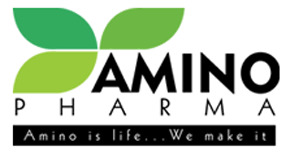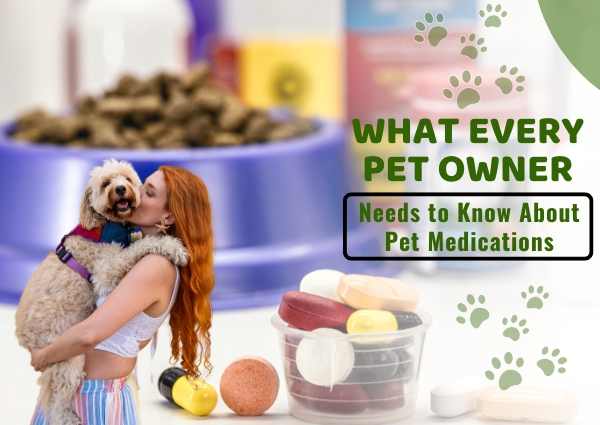As pet parents, we go above and beyond to make sure our furry companions live long, healthy, and happy lives. From regular check-ups to grooming sessions, everything contributes to their wellbeing. Yet one area often overlooked is the safe and effective use of pet medications. Understanding how pet medicines work, when to use them, and where to source them can make all the difference in protecting your pet’s health.
In this article, brought to you by Amino Pharma, we’ll explore the essentials every pet owner must know about pet medications.
Why Pet Medications Matter
Just like humans, pets can suffer from infections, chronic diseases, allergies, or even anxiety. Medications designed for animals are scientifically formulated to treat specific conditions while keeping their bodies safe. Unlike human drugs, pet medications are dosed and tested for different species. Giving your pet over-the-counter human medicine without veterinary advice can be harmful, sometimes even fatal.
This is why pet-specific prescriptions and guidance from a licensed veterinarian are absolutely crucial.
Types of Pet Medications
Pet medicines come in many forms, each serving a unique purpose:
- Preventive Medications – Flea and tick preventives, heartworm tablets, and dewormers protect pets from parasites and serious infections.
- Antibiotics and Antifungals – Used for bacterial and fungal infections.
- Pain Relief & Anti-Inflammatories – For arthritis, post-surgery recovery, or injuries.
- Chronic Condition Medications – Such as insulin for diabetic pets or thyroid supplements.
- Behavioral Medications – Used for pets dealing with anxiety, stress, or aggression.
Knowing what type of medicine your pet requires, and following dosage instructions carefully, is essential for successful treatment.
How to Give Medication Safely
Administering medication to pets can be tricky, but with the right approach, it becomes easier:
- Follow the prescription exactly – Never adjust the dose on your own.
- Use correct administration methods – Some drugs must be given with food, others on an empty stomach.
- Watch for side effects – Lethargy, vomiting, or appetite changes should be reported to your vet immediately.
- Never stop medication mid-course – Especially antibiotics, as incomplete treatment can worsen infections.
If you’re unsure about the process, ask your vet for a demonstration. Many clinics also provide flavored medication options to make it easier for pets to accept.
The Role of Pet Medication Wholesale Distributors
Behind the scenes, Pet Medication Wholesale Distributors play a vital role in ensuring clinics, pharmacies, and pet stores are well stocked with authentic and high-quality veterinary medicines. These distributors act as the link between pharmaceutical companies and veterinarians, guaranteeing timely supply and safe storage conditions.
By sourcing medications through licensed wholesale distributors, veterinarians and pet supply stores reduce the risk of counterfeit products, expired stock, or poorly stored drugs. For pet owners, this means the medicines prescribed by your vet are safe, effective, and reliable.
How to Identify Trusted Sources
Unfortunately, the rise of online pharmacies and counterfeit drugs has made it harder for pet owners to differentiate between safe and unsafe products. To protect your pet:
- Buy only from licensed pharmacies or directly through your vet.
- Check the packaging and batch number. Authentic drugs always carry proper labeling.
- Avoid suspiciously cheap offers. If it seems too good to be true, it probably is.
- Ask if the supplier works with trusted Pet Medication Wholesale Distributors.
When in doubt, always consult your veterinarian before purchasing.
Common Mistakes Pet Owners Make with Medications
Even the most loving pet parents sometimes make errors that can compromise treatment. Here are a few to avoid:
- Sharing medication between pets. Each pet may need a different dose or drug.
- Skipping doses. Missing medicine can reduce effectiveness.
- Overusing supplements. Even natural remedies can cause harm in high amounts.
- Not checking interactions. Combining medications without professional advice may lead to complications.
Tips for Making Medication Easier
- Hide pills in treats or soft food.
- Use pill pockets available at pet stores.
- For liquid medicine, use a vet-approved syringe.
- Reward your pet after every dose to build positive reinforcement.
Why Veterinary Guidance is Non-Negotiable
Google searches and home remedies cannot replace expert advice. Only a licensed veterinarian can properly diagnose, prescribe, and monitor your pet’s health. Always schedule regular check-ups, and never attempt to substitute or discontinue medications on your own.
Pet medications are not just about curing illnesses—they’re about improving the quality of life for your four-legged companions. Whether it’s preventing deadly parasites, managing chronic diseases, or easing pain, the right medication ensures your pet lives healthier and happier.
Behind this ecosystem, Pet Medication Wholesale Distributors ensure that trusted products reach veterinary clinics and pharmacies safely, bridging the gap between manufacturers and pet owners.
At Amino Pharma, we believe every pet deserves safe, effective, and affordable treatment. By staying informed and relying on the right sources, you can give your pets the care they truly deserve.

